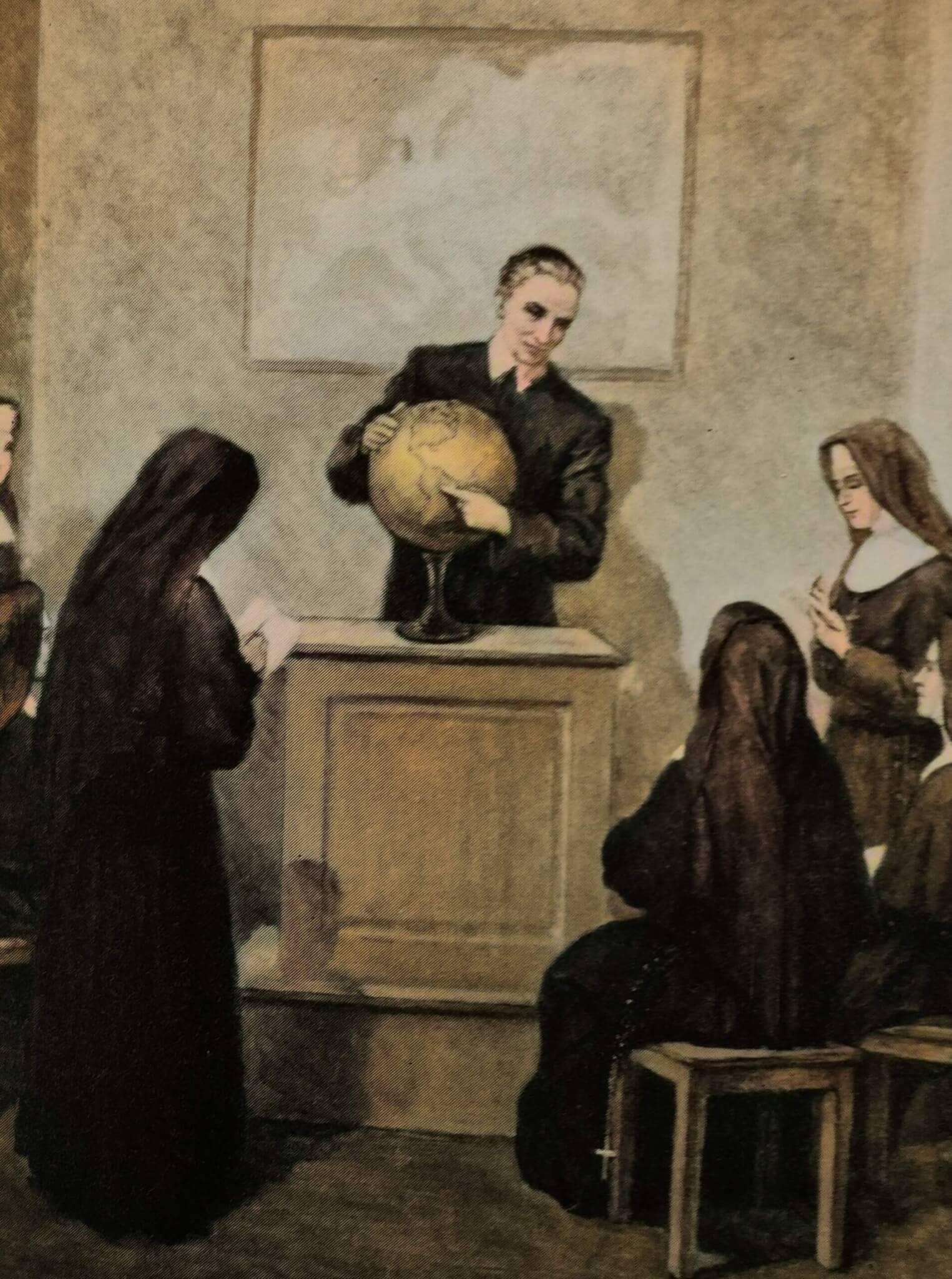St Luigi Scrosoppi
Something that visitors often remark upon is how good a thing it is that the Fathers greet the faithful after each Sunday Mass. This is an important opportunity to get to know people, to arrange sick visits, baptisms and the like, and enables us to exercise the spirit of St Philip that our Cardinal expressed so well in his motto cor ad cor loquitur (“heart speaks unto heart”: the words of another great Oratorian St Francis de Sales). Recently one of our Fathers met with a family from Udine in Italy who were overjoyed to find in our church the image of St Luigi Scrosoppi, of the Congregation of the Oratory in that city, and whose feast we celebrate today. The great gift of the communion of saints is that friendship we find with them, as examples to imitate and as real companions in heaven who intercede for us and protect us.

Luigi Scrosoppi was born in 1804 and two years later his half-brother Carlo entered the Oratory in Udine. The Congregation had been established in 1650 but was suppressed in 1810 by Napoleon and the Fathers expelled. Fr Carlo came then to live with his family again and imbued the young Luigi with the joy of the Faith and the spirit of St Philip. Luigi discerned a calling to the priesthood and was ordained in 1827, celebrating his first Mass in the former Oratorian church of Udine where many of the former Fathers still functioned and thus exercised an abiding Philippine influence upon the faithful and clergy of Udine.
Father Luigi was a humble and devoted priest. Together with his brother Fr Carlo he took over the care of the Casa della Derelitte, an orphanage for poor girls. This included not only their spiritual care but also their material support and Fr Luigi could often be seen in the streets of Udine begging for food for the girls. He did not find this shameful or humiliating, but rather a means of living out the commands of the gospel. It is no surprise therefore that this experience caused him to ask himself whether the Lord was not calling him to further imitate the Poverello of Assisi by entering the Franciscan Order. Udine was his mission-field however, just as Rome had been for St Philip and the trials of his people convinced him that God wished him to work where he had placed him. Fr Luigi’s work with the orphans flourished and in 1845 he was able to gather a group of devoted women to help him in his work. These became the Sisters of Providence of St Cajetan, whose work with the poor and destitute continues to this day.
In 1846 the Oratory of Udine was allowed to reopen formally with Fr Luigi’s brother as the provost. Luigi himself received the habit of St Philip in this same year and his Oratorian life enabled him to work especially amongst the young people and students of the city. He was elected Provost in 1856 just as the fortunes of the Oratory were to take another turn in the wake of Italian Unification. Whilst he was able to prevent the Sisters of Providence from being disbanded, the Oratory itself was again suppressed in 1867 and its Fathers dispersed. For the rest of his life St Luigi signed his name “of the Oratory” and insisted it be engraved upon his tomb, leaving all his possessions to the Oratory of Udine in case of its re-establishment. He died in 1884, having devoted his last years to the work of the Sisters and the promotion of the papacy. His heavenly intercession continues to draw many friends to this humble and cheerful model of Oratorian life: notably the miraculous cure from AIDS of a Zambian catechist being the miracle approved for his canonisation. St Luigi has also become a patron for footballers in light of his work with youth as well as his example of perseverance and determination.
During his first years in the Oratory Saint Luigi had written a series of resolutions to follow in his own spiritual life. One of these reads “I want, Lord, to sanctify myself by sanctifying others, doing everything I can to prevent them from falling into sin, and to excite in others a love for you, and a desire to follow Jesus Christ our Lord”. This he did with all his heart.

